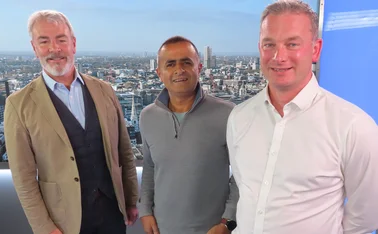
Loss adjusting – review of the year: Battling for talent

2010 has proved an interesting year for the loss adjusting sector, reports Leigh Jackson, with a number of new entrants and the issues of ethics and recruiting new talent coming to the fore.
The past 12 months have been both an interesting yet familiar period for the loss adjusting industry. While the market witnessed a number of new entrants, including spin-offs from large adjusters and a raft of executive hires, claims firms were also faced with the age-old issues of ethics and the problem of attracting young talent to the industry.
New entrants
The year saw some companies enter the fold with Carr Greenwood Smith founders Dave Greenwood, John Carr, Graham Cranford-Smith and Chris Rechtern founding Quadra in May, and Lorega launching a new adjusting arm, Lorega Solutions, during the same month. Questgates also acquired Teceris' liability and claims handling divisions in February.
However, despite the team hires and new or expanded firms, the consensus among loss adjusters is that competition did not increase during the year.
"There is plenty of room for all of us," asserts Phil McNeilage, chief executive of Cunningham Lindsey. "There are bound to be one or two smaller players entering the market in the near future and that is entirely healthy for our clients."
Mr Cranford-Smith adds that the diverse nature of the market means that many new firms have the opportunity to specialise in less competitive, increasingly niche areas.
"There are clients in the market that require something more niche and they may get lost with the big adjusters," he says. "There may be room for entrants in this sector." He adds: "We have received a good level of support from the market. We are trading on specific relationships and have a good reputation in the London market with the smaller insurers. They are certainly receptive to the idea of new entrants in the market."
Young adjusters
These changes may invigorate the market place in the short term, but it is unclear whether any new young talent in the sector can do the same. The issue, which has been rumbling on for many years, still divides the industry.
Carmichaels managing director Keith Curling says that no real steps have been taken in the past 12 months to address the problem.
"I'm not aware that there have been great strides taken on this issue," he explains. "Everyone is acutely aware of the fact that in the next five to 10 years there will be a lot of us grey-haired people disappearing. And who will be there to follow us?"
And with the training and qualification period for loss adjusters taking time any moves to address the problem this year are unlikely to bear fruit until long into the future.
"The trouble is that the qualification period means the majority of people take a number of years to qualify," says Chris Hall, managing director of Questgates. "If we are talking about the number of qualified adjusting staff in the profession, we will be facing the same issues this time next year. Hopefully, however, some young adjusters will be making progress in a short period."
Mr Hall also calls on the Chartered Institute of Loss Adjusters to domore to involve young people in the organisation in a bid to attract new talent.
He adds: "It is quite evident that there is scope for a young members' division. I went to the CILA lunch earlier this year, and we were all grey haired. We need to do something, even if it is partly social, to get young people involved in the industry."
Other adjusters are optimistic that at least small steps have been taken to bring more young people into loss adjusting during 2010.
And Andrew Homewood, CILA president, denies that the body has not been doing enough to bring young adjusters to the fore.
Pointing to the body's exam structure as an example, he explains: "CILA has made fantastic strides in providing a platform for the younger entrants. In addition, if we look at most of the medium to large companies they have programmes geared towards attracting younger talent. GAB Robins, Crawford & Company, Lorega and Cunningham Lindsey all have strong training schemes.
"And this goes beyond adjusters. If you look at insurers they are making moves to open up the industry to new talent and graduate entries."
Simon Burley, chartered loss adjuster and co-founder of Delta Claims, is also positive about the work being done to address the skills shortage, and dismisses claims the industry is heading for a serious problem.
"I see more people taking CILA examinations, with big companies in particular pushing for the exams which has definitely been a positive development," he says. "It has been described as a demographic time bomb, but there is some good stuff going on to address that. There are impressive, well-trained younger people coming through the ranks and there are ideas in the pipeline that will help significantly."
Ethical dilemmas
With Roger Topping, managing director of Topmark Adjusters, formally launching the Independent Loss Adjusters Association this year, and the CILA kicking off a revamp of its code of conduct, adjusting ethics were, once again, a crucial issue.
Mr Curling backs the work of the ILAA, claiming that the body - founded on a vow that adjusters should not accept contractor commission payments - had helped the industry take strides to clean up its act.
"We've taken a firm view that we only operate on behalf of the insurer/broker client," he says. "I have had conversations with reasonably senior people in the industry who say that we should be doing both and should represent policyholders. I'm afraid I see that as a conflict and this is a view we have taken within the company.
"Commissions do affect the ability of adjusters to do their jobs effectively. We are not members of the ILAA but strongly support the view that commissions cloud the issue."
Mr Curling adds: "The whole issue has contributed to the watering down of the profession. It is passing the handling of claims over to suppliers and those claims are being processed without the use of quality, experienced or qualified adjusters."
Other adjusters believe that, with or without the influence of the ILAA, more companies should take a stand against commissions, and that more could have been done in the past year to tackle the problem.
"We do not take commissions and will not be influenced by commission that is on offer," says Stewart Steel, managing director of VRS Vericlaim.
"Where the opportunity to take commission has arisen we have made it clear that we want prices to be readjusted so the clients pay the same amount. It is happening frequently and it is a sad indictment of the profession. Loss adjusters should only make their revenue form overt loss adjusting activity."
However, Merlin director of loss adjusting Russell Crewe believes that there is no case for the industry to answer on commissions.
"The real debate is transparency versus hidden commissions," Mr Crewe says. "Many companies, like us, disclose management fees, income revenue around added-value services against those that charge hidden fees. In my opinion, it has to be a joined-up approach.
"Commission is a reward for providing a service and a management fee is a cost associated with an added-value service. If it doesn't reduce the cost of the claim it doesn't add value."
CILA's decision to modify its code of conduct has also divided opinion in the loss adjusting industry. Joe McMahon, chairman of Charles Taylor Adjusting, believes the body has overstepped the mark in its bid to bring conflicts of interest under tighter control.
"CILA was a little bit too enthusiastic," he explains. "Conflicts can arise in a number of different ways and they occur all the time. For us it is important to be open about it.
"If you can work with the parties and come to the best conclusion, legislation and detailed rules are not necessary so long as there is openness."
Mr Burley claims that moves to modify the code are an unavoidable consequence of modernising the institute but acknowledges that many firms are already aware of the guidance around conflicts of interest. "The protocol has been looked at as a consequence of changing the charter," he says. "CILA has taken solicitors' advice on how the wording should stand up. However, I don't see it as a huge issue; loss adjusters already have a very sensible approach to handling conflicts of interest."
2011 and beyond
With 2010 almost behind us, what lies in store for the industry next year? Will the ongoing debates surrounding ethics and young adjusters continue to rage? Will we see another glut of new entrants in the market during 2011?
Trevor Latimer, managing director of MYI, explains that rather than completely new entrants, the industry might see a number of Quadra-style spin-offs entering the sector. He says: "There is a big market and huge appetite for pure loss adjusting as one part of the supply chain. What we have found during the course of the year is that this appetite is unabated."
Mr Latimer adds: "It is not an easy thing to do to get a new business off the ground. You need a lot of financial backing to be able to do that. And you have to be sure that there is market support. There is always scope for smaller businesses to breakaway from larger ones. That is the nature of the beast."
The debate on ethics, especially concerning commission fees is also set to be a hot topic in 2011, with individual firms ready to stick to their principles. With commission payments driving down rates, companies refusing to take additional fees may find themselves caught between a rock and a hard place.
"We have to break out of this vicious circle," Mr Curling explains. "Fees have dropped because the adjusting companies are earning a commission rather than an adjuster fee.
"In the long term, that has a detrimental effect on companies like ourselves that do not operate in that way. We are working for insurers that will use companies that operate on a commission basis and, as it drives their fees down, we have to respond."
However, one thing that most adjusters agree on, is that the ongoing skills debate is definitely going to be on the agenda in 2011.
"It certainly won't happen overnight. It is hard to employ new people at the moment because of cost constraints and to attract new people we have to make the job attractive," says Tom Battell, director of Adjusting Solutions. "The battle for talent is more likely to be a longer-term win than an immediate one."
|
2010: A year in loss adjusting |
|
January |
|
February |
|
March |
|
April |
|
May |
|
June |
|
July |
|
August |
|
September |
|
October |
|
November |
|
Highlights of 2010 |
|
Keith Curling,managing director, Carmichaels - The biggest achievement this year was our merger into the Parabis Group,where we now sit alongside Argent. It gives us financial stability, strength and the ability to go to the market to offerawider range of services. |
|
Chris Hall, managing director, Questgates - Counter fraud has been huge for us since we took on the Teceris team. It has really strengthened our business.We bought the claims handling business in Birmingham and with that came some huge clients such as Intercontinental Hotels, Clarks and House of Fraser. |
|
Simon Burley, co-founder, Delta Claims - The biggest thing for us is that our franchise business model is different from the norm. |
|
Graham Cranford-Smith, director and co-founder, Quadra - The launch of Quadra itself is the highlight of our year.We could have gone to work for someone else or we could have stayed at Merlin, but we wanted to show the market that we can dust ourselves down after a difficult period and start again. |
|
Russell Crewe, director of loss adjusting services, Merlin - The best thing that we have achieved as a business this year is to recognise and invest in people and drive through new processes that will bring rewards to our clients. |
|
Stewart Steel, managing director,VRS Vericlaim - Getting the business off the ground and the acquisition of the staff from Teceris were massive achievements this year.. |
|
Neil Ventris, managing director,Argent Liability Adjusters - The acquisition of a minority stake in Carmichaels, which takes us from being a specialist liability adjuster to having a wider appeal, was our highlight of 2010. |
|
Malcolm Hyde, executive director, Chartered Institute of Loss Adjusters—The huge steps we have taken towards accreditation with Bournemouth University is a highlight. This gives us instant international recognition with our qualification. |
|
Mike Jones, chief operating officer, GAB Robins - Receiving the recognition of the industry at the British InsuranceAwards for our handling of the Cockermouth floods was our highlight of 2010. |
|
Trevor Latimer, managing director, MYI -Getting our UK network to a sufficient size is a major achievement; we now have a sizeable presence in all parts of the UK and across the entire market. |
|
Tom Battell, director, Adjusting Solutions - It has to be the Chile earthquake for us.This was a major event and we worked with |
|
Phil McNeilage, chief executive, Cunningham Lindsey - The performance of our staff through a series of testing weather events was the highlight. The fact we got every policyholder back in their homes in Cockermouth is a pretty good example. |
|
JoeMcMahon, chairman, Charles Taylor Adjusting - In the past two years we have seen the fruits of bringing our numerous companies together, including coming out as the top adjuster in Post’s sister Insurance 360 loss adjusting survey. |
|
Darren Coombes, director of markets, Davies - We have upped our business through pure organic growth and have added 100 |
|
Angus Tucker, operations director, Lorega Solutions - The highlight of 2010 was getting the new company off the ground. The concept came to the fore in January and now we have staff on board and a healthy level of work coming through. |
|
RichardTurner, client services director, Crawford & Company - The highlight of the year was a number of our staff completing their MBAs, which will safeguard Crawford going forward. |
Only users who have a paid subscription or are part of a corporate subscription are able to print or copy content.
To access these options, along with all other subscription benefits, please contact info@postonline.co.uk or view our subscription options here: http://subscriptions.postonline.co.uk/subscribe
You are currently unable to print this content. Please contact info@postonline.co.uk to find out more.
You are currently unable to copy this content. Please contact info@postonline.co.uk to find out more.
Copyright Infopro Digital Limited. All rights reserved.
As outlined in our terms and conditions, https://www.infopro-digital.com/terms-and-conditions/subscriptions/ (point 2.4), printing is limited to a single copy.
If you would like to purchase additional rights please email info@postonline.co.uk
Copyright Infopro Digital Limited. All rights reserved.
You may share this content using our article tools. As outlined in our terms and conditions, https://www.infopro-digital.com/terms-and-conditions/subscriptions/ (clause 2.4), an Authorised User may only make one copy of the materials for their own personal use. You must also comply with the restrictions in clause 2.5.
If you would like to purchase additional rights please email info@postonline.co.uk







